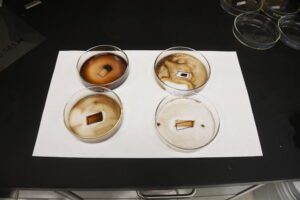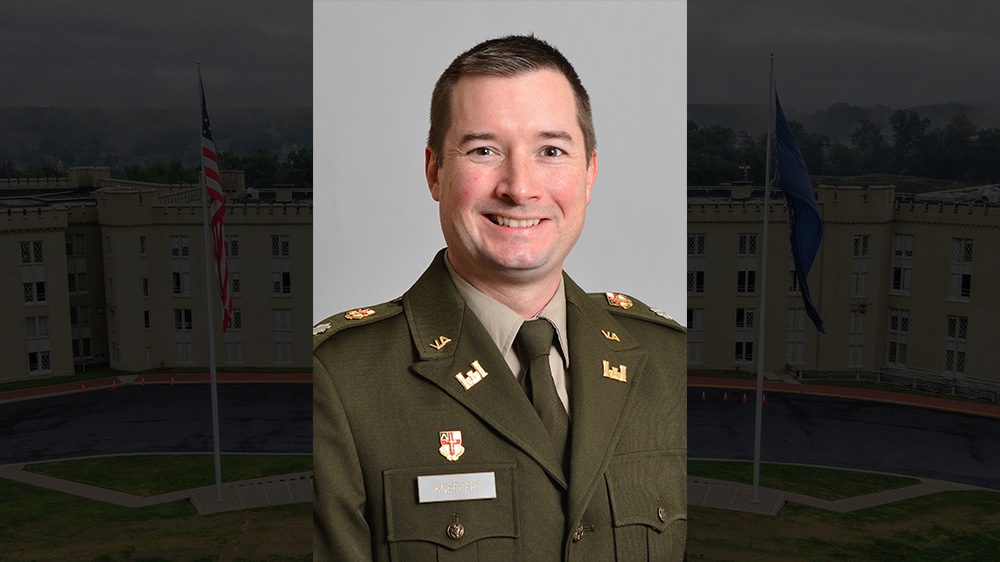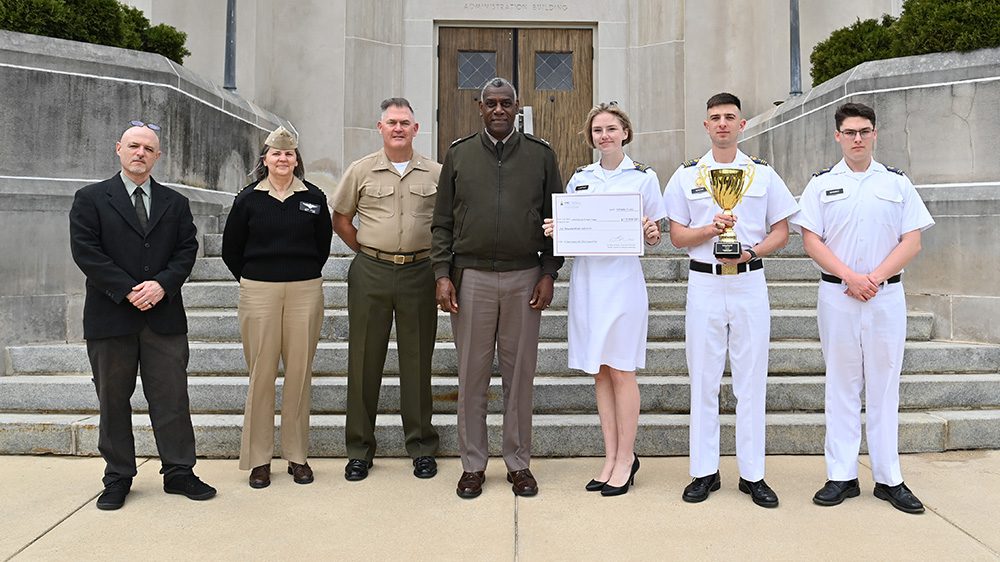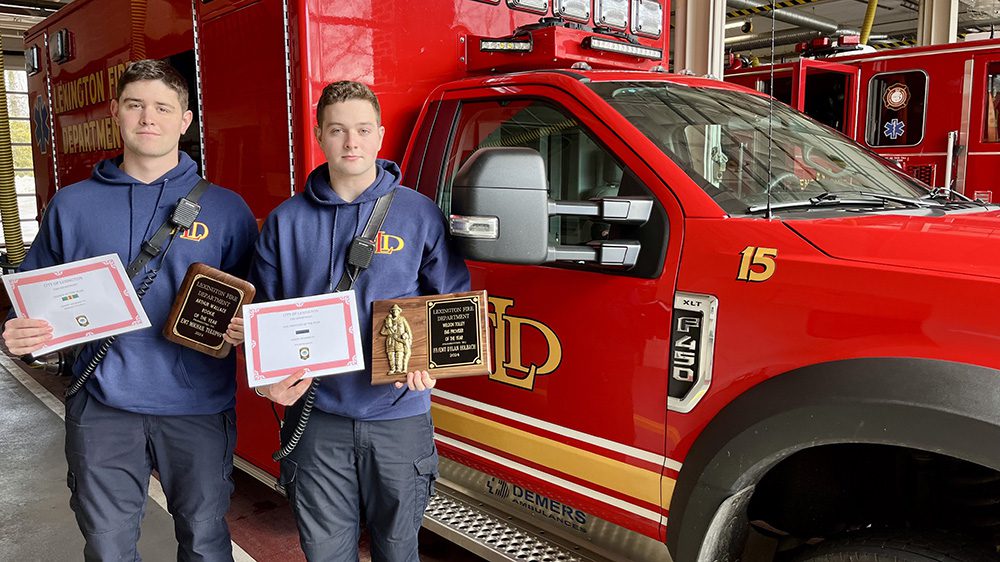VMI’s chemistry department is developing an accessible test kit to safeguard the essential resource of every community: Clean water. The research of Maj. Shannon Quevedo, Ph.D., assistant professor of chemistry, and Cadets Emma Cameron ’25 and Bella Bruzonic ’25 aims to create an affordable and portable tool to test water for contaminants. By developing a handheld test kit, Quevedo and her students hope to provide communities with safer water and even support the efforts of local law enforcement.
Quevedo specializes in analytical chemistry and the detection of small molecules using organic phases. In this project, Quevedo and her cadet researchers are developing a test kit for the average person to screen for harmful molecules from substances such as cocaine and amphetamines in water. Despite filtration, these substances arrive in drinking water through wastewater.
“The content of wastewater is a big concern for city and county governments that filter wastewater and provide drinking water,” said Quevedo. “All sorts of substances end up in our wastewater: Nicotine, cocaine, amphetamines, and opioids for example. Often people dispose of their leftover prescription medications by flushing them down the toilet, and they end up in the wastewater.”
Not only would accessible water test kits allow more individuals to test their water for these damaging substances, but they also would help law enforcement officers seeking to trace illicit drug use.
“Local authorities are able to track illegal drug use by testing wastewater,” explained Quevedo. “It’s a big concern for health care providers and policymakers, and we want to assist that endeavor by developing these small, completely portable, and affordable test kits.”

Petri dishes used by Cadet Emma Cameron ’25 in her research with hydrogels show progress in detecting illicit drugs in water.—VMI Photo by Marianne Hause.
Over the summer, Quevedo oversaw the research of Cameron and Bruzonic toward developing these tests. Both cadets utilized a base made of hydrogels, a clear gelatin-like substance made of chemicals and water, commonly used for contact lenses, hygiene products, and wound dressings. Cameron and Bruzonic are each working to discover a different contaminant in water by using the hydrogel.
In her research, Cameron, a chemistry major from Chesapeake, Virginia, is seeking to detect cocaine in wastewater, enabling municipalities and law enforcement to know the extent of illegal drug use and pinpoint the locales where the use originates. Instead of testing cocaine, she used benzoylecgonine, a legal substance similar in molecular structure to cocaine.
Bruzonic, a civil engineering major from Annandale, Virginia, chose to test sulfates. Sulfates are used in fertilizer and are a common pollutant from industrial waste in many parts of the world. They are a major concern in Bolivia, where Bruzonic’s family is originally from.
Once the test substances were added to the hydrogels, the cadets checked the Petri dishes every hour to note any reaction. “Some results were seen in 24 to 48 hours,” reported Cameron. “We have allowed the Petri dishes to sit for two months now, and we see good results.”
One of the major goals of the research is to encourage community science. Quevedo and her students hope to encourage communities to take initiative in engaging and protecting their local water supply.
“We want to encourage people to get involved with science and their community,” said Quevedo. “School children will be able to take these test kits and check creeks, lakes, rivers, or just their tap water to determine if there are any contaminants. In addition, this research provides occasions for VMI cadets to talk with governments about their findings as well as public speaking and educational opportunities.”
Despite their success thus far, it will take years before these tests will be available for their intended purpose and in the hands of communities. “We are still in the testing phase,” Quevedo said. “It may be another five to six years before the product will be ready for public use.”
Since completing their research this summer, Cameron and Bruzonic may work on the project unofficially as their schedules allow during the fall and spring semesters and will continue their research efforts in earnest next summer.
-
Marianne Hause VMI Communications & Marketing



